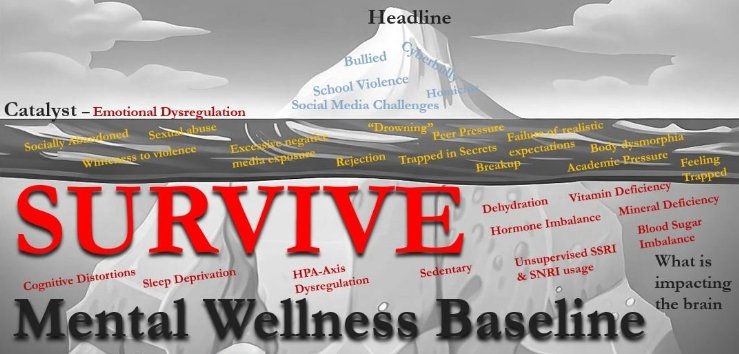Why are Some Kids at Higher Risk?
Key risk factors that can impact children's and adolescents' health and development.

Children in unpredictable environments—whether due to family instability, socioeconomic challenges, or frequent relocations—may struggle with emotional regulation and resilience.
Impact: Unstable environments—such as frequent relocations, family disruptions, large chaotic school environments or socioeconomic hardship—can lead to chronic stress, affecting emotional regulation and cognitive development.
Intervention: Establishing predictable routines, fostering secure relationships, providing consistent support systems (mentors, educators, and community programs) can help mitigate instability. Sometimes a complete change of environment is necessary for the mental health of the child.
Low Expectation of Stability
Young athletes often have increased energy demands, but if their diet lacks nutrient density, they risk deficiencies in iron, calcium, and essential vitamins, which can affect performance and long-term health
Risk: Young athletes often have higher energy demands, but many lack nutrient-dense diets, leading to deficiencies in iron, calcium, vitamin D, and protein.
Effects: Poor nutrition can result in fatigue, weakened immunity, and impaired recovery.
Solutions: Encouraging balanced meal planning, hydration strategies, and education on nutrient timing can optimize performance and overall health
Sports & Nutrition Deficiencies
Persistent immune system activation—often linked to stress, poor diet, certain medications or environmental factors—can lead to inflammation, fatigue, and increased susceptibility to mental illness.
Causes: Persistent immune activation can stem from stress, poor diet, environmental toxins, or underlying health conditions.
Consequences: Chronic inflammation may contribute to fatigue, mood disorders, and increased susceptibility to infections.
Management: Supporting gut health, reducing processed foods, and promoting stress management techniques can help regulate immune responses.
Chronic Immune Activation
Common Issues: Insulin resistance, thyroid imbalances, and mitochondrial dysfunction can affect energy levels, growth, and cognitive function.
Signs: Symptoms may include difficulty concentrating, weight fluctuations, and persistent fatigue.
Intervention: Early screening, nutritional adjustments, and physical activity tailored to metabolic needs can improve outcomes.




